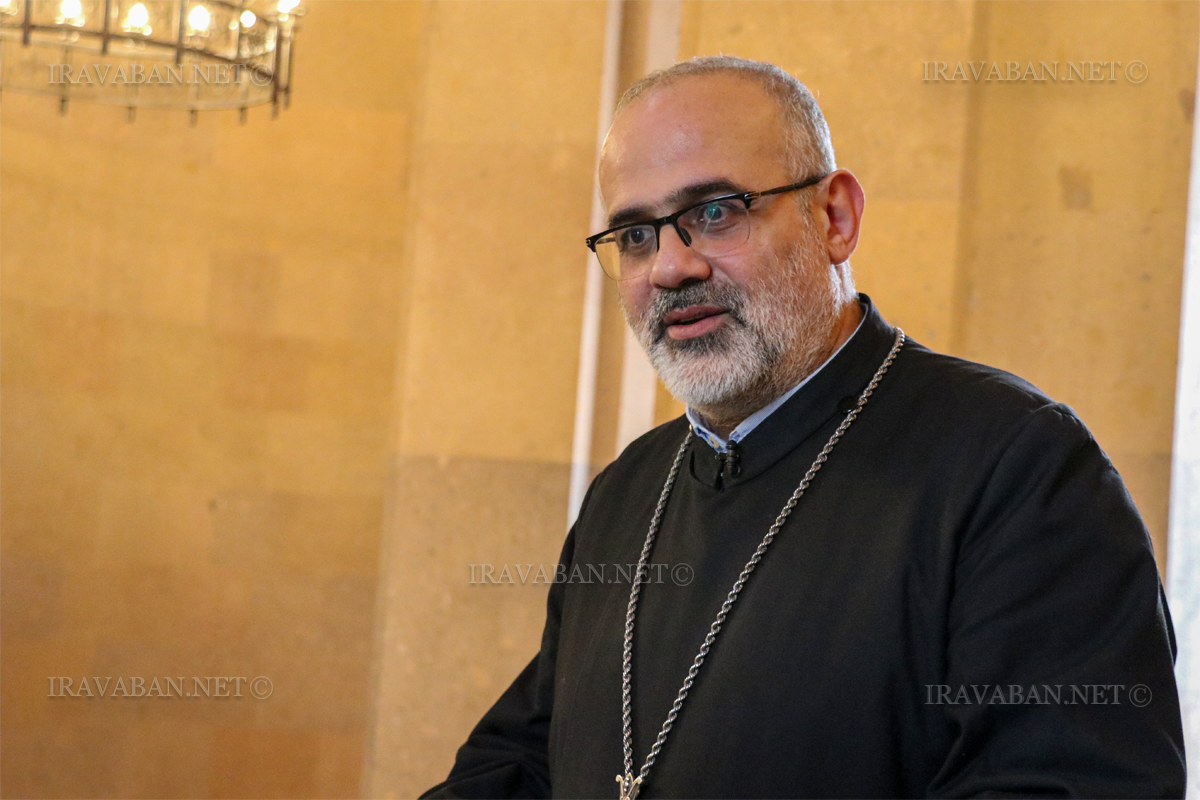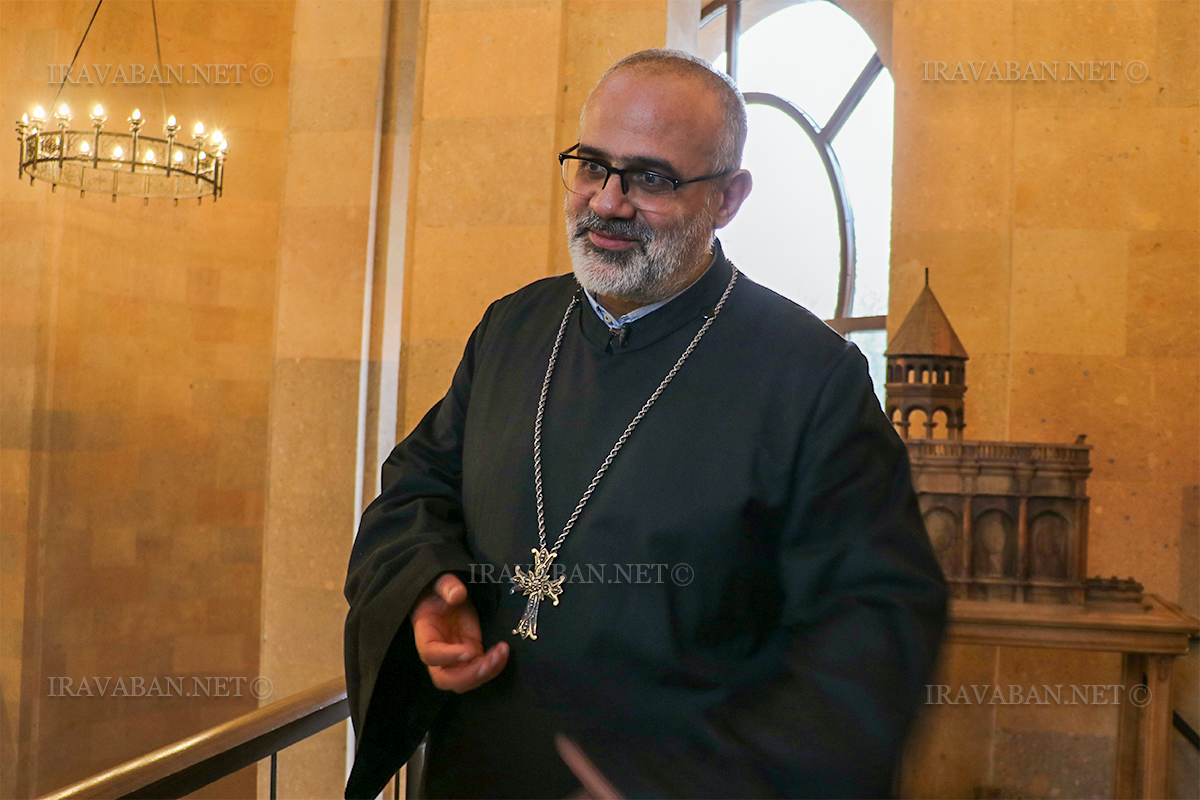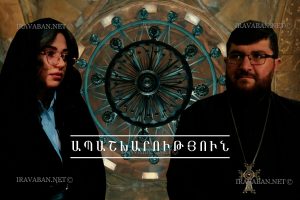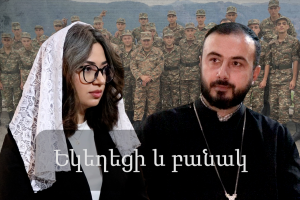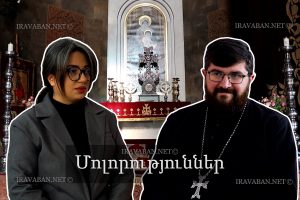Within the framework of “The Church and the Law” series of interviews, Iravaban.net talked with spiritual pastor of Saint Anna and Kathoghike Churches of Ararat Patriarchal Diocese, Priest Zenon Barseghyan.
– Please tell us what is the meaning of fasting in the Armenian Apostolic Church, where does it come from?
– If we open the Ritual Calendar, we will see that it is divided into two parts: the days when you can taste different foods and the days when the quantity of that food is limited. There are three types of fasting in the Armenian Church. There is regular fasting, during which we consume plant food, there is holy fasting, during which we consume salt, bread and water, and there is fasting, when we do not consume any food or water for 24 hours. I would very much like the fasting to never be a tribute to something, the fast should be real. To weaken the person, to raise the soul in order to correct your path to God. Observance fasting prepare us to meet the Lord. Weakening ourselves through fasting, living a spiritual life, we prepare ourselves, our souls for the Lord’s presence. I would very much like for our Armenians to come to churches in that period, when they have to start fasting, to receive the blessing of the clergy, the guidance to go through that path of fasting, which is very important. Fasting is not limited to food only, if I do not eat food, but deal with other matters, it will not be abstinence. If I eat vegetarian food and think about cooking all day and do not prioritize spiritual life, fasting becomes pointless and irrelevant. That is why it is very important to receive the blessing of the clergyman. The period of Great Lent is the holy season.
– Who cannot fast?
– Fasting is the weakness of the body. Those who have health problems, their body is already in a weakened state. Those who are in prenatal state, that is, pregnant women who carry life inside them, also do not observe fasting. All others can pass the fasting period.
– Fr. Zenon, will you present what cannot be done in that period?
– A Christian is a Christian 24 hours a day and, naturally, the Great Lent has an advice of pause, and has an advice for prayerful life. In other words, when you take a break from your daily life for a moment and give more impetus to your observance and spiritual life, you gather strength to walk on the path of Christ during the year. Great Lent also prepares for the resurrection of the Lord.
– If a person refuses in the middle of fasting, is it a sin?
– Every Christian should have a spiritual leader in his spiritual life to cross that path. There can be various reasons and a person can get the solution of these reasons from his spiritual leader. That is why it is very important to have a spiritual leader.
– Are there any special foods that must be prepared during that period? Also, please tell about Mid-Lent.
– The period of Great Lent is the period of salt and bread, the most important food here is salt, bread and water. Naturally, there are no special foods, only plant foods. The whole meaning of the Mid-Lent is that Lent is divided into two parts.
– Are weddings allowed during Lent?
-Of course no. Weddings are not allowed during fasting. But there are exceptions, one of them is when, according to the order of His Holiness Vazgen, during the Great Lent period, except for the senior week, they allowed to perform a wedding. But we are trying to explain that it would be much better if you let this period pass. 90 percent of 100 people postpone their wedding.
– Why are the curtains closed?
– Great Lent is a period of unworldliness and during the liturgy there is an order from the deacon who says: let those who are not baptized, who are in the period of unworldliness, go out into the courtyard. At one time, the churches had a narthex, which was closed with doors, and those who were in the period of repent were spent it in the narthex, they did not participate in the sacrament. And now, since most churches do not have a narthex, we close the curtains.
– What is justice?
– It is in Hosea’s (Osee’s) prophecy, he says: I will not punish you, because I am God and not a man. Look, under what magnifying glass we look at justice.
– What is morality?
– Morality is about doing good and living in the divine presence.
– What is faith?
– Faith is the power that brings man closer to God and brings God closer to man.
– To what extent are justice, morality and faith interrelated?
– There is no Christian without those three interrelated.
Details in the video.
Hasmik Sargsyan


